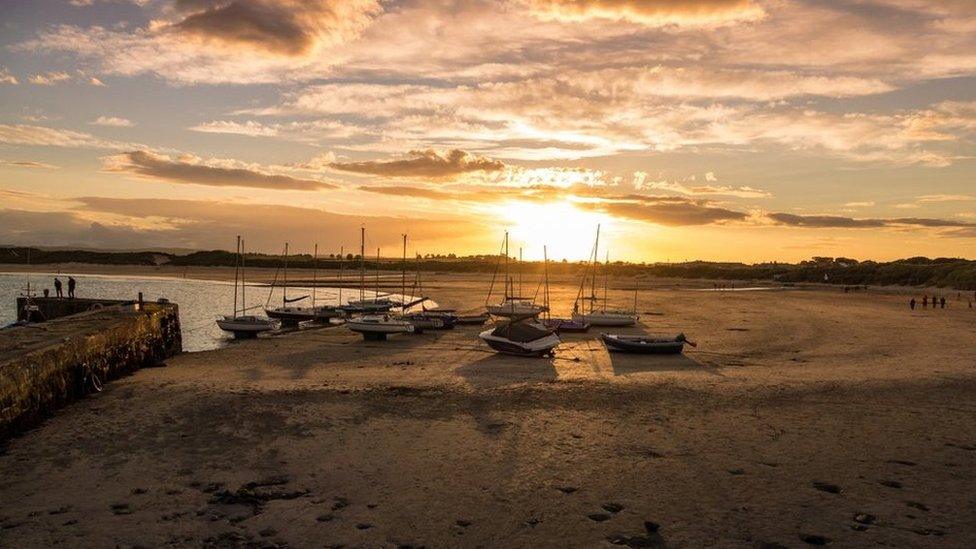Farne Islands: Bird flu leads to low numbers on boat tours
- Published
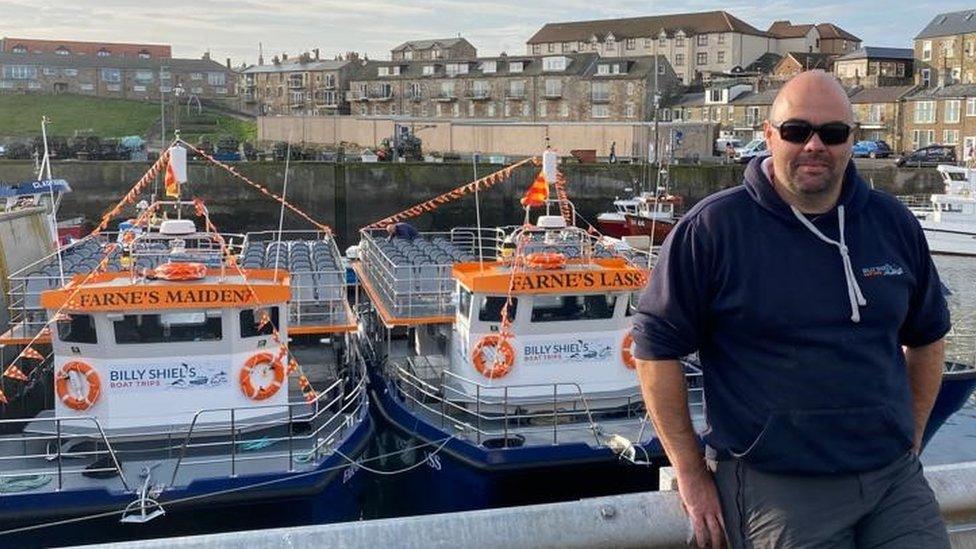
Michael Craig said during peak summer months the boats were "hardly carrying anyone"
A boat skipper, who has spent 23 years ferrying visitors to and from the Farne Islands, says the business has seen the one of its "quietest" seasons.
The Northumberland islands have been closed since April because of bird flu.
The outbreak has prevented visitors from landing on the islands, which will remain closed until 2024, but boat tours around them have continued.
However, skipper Michael Craig says visitor numbers on boat trips have dwindled.
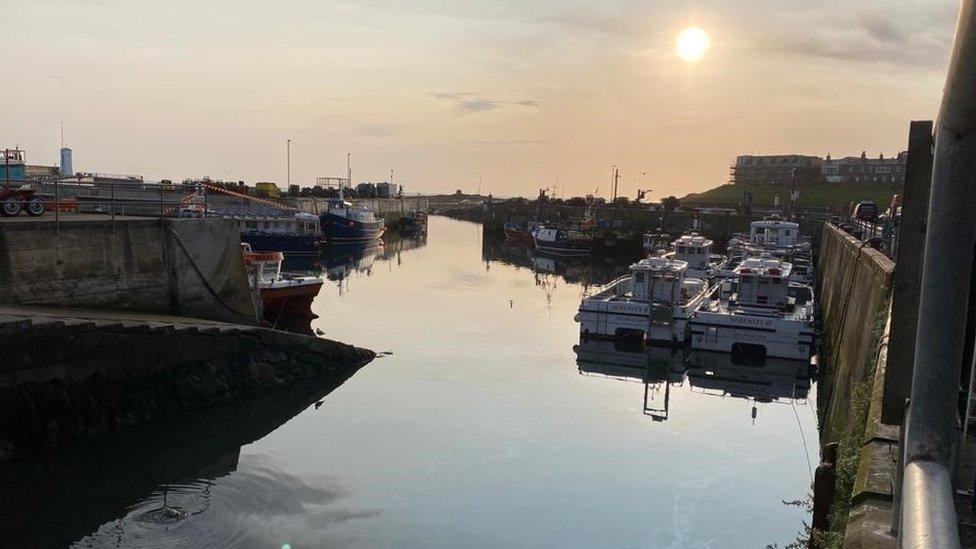
A number of boat tour companies work out of Seahouses harbour
Mr Craig, who works for Billy Shiel Farne Island Boats, out of Seahouses harbour, said: "We have lost a lot of business from birdwatchers and photographers.
"The trips have been running all year round, but most people want to land on the islands and unfortunately we haven't been able to do that."
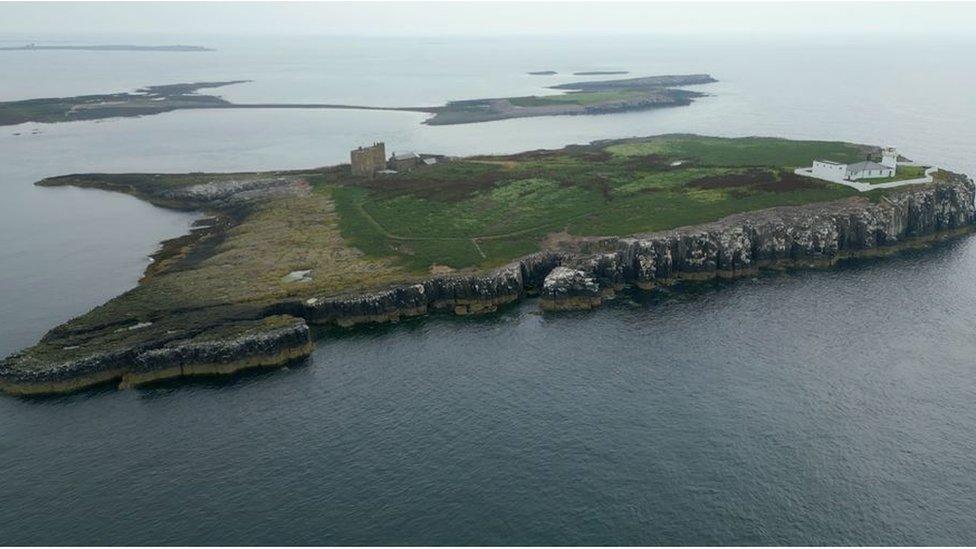
Inner Farne is a globally significant breeding site for seabirds
The National Trust took the decision to close the islands, which are home to puffins, guillemots, razorbills and Arctic, sandwich and common terns, after a bird flu outbreak for a second consecutive year at the seabirds' colony.
Last year, more than 6,000 birds died on the islands. The conservation charity had hoped closing the islands for a second year would limit the spread of the disease and help returning breeding birds next year.
The National Trust's website states access will remain restricted "until at least the end of the year, with no landings on Inner Farne or Staple Island".
But it adds: "Visitors are still able to take 'sail around' tours of the islands and can book tickets directly with one of the boat companies that operate from Seahouses harbour."
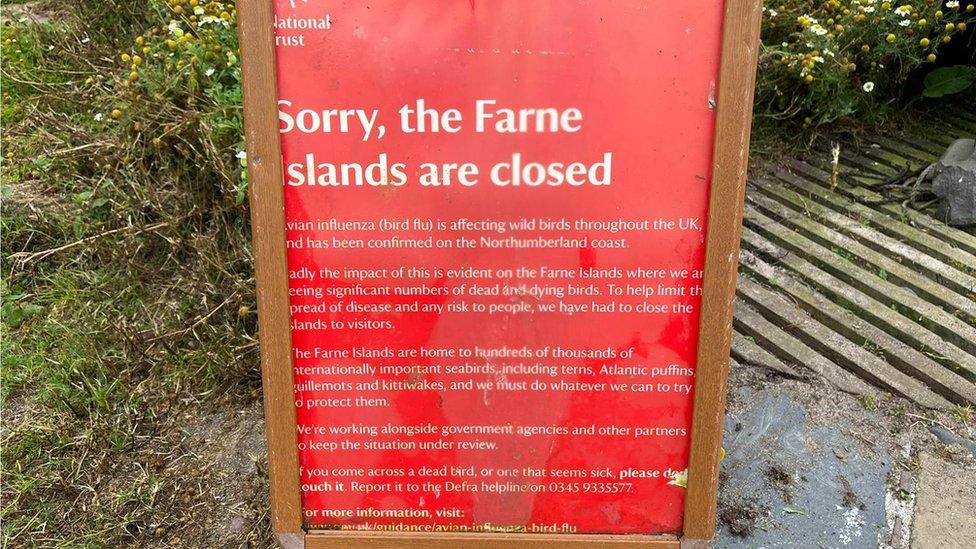
The National Trust closed the Farne Islands to landing visitors after confirmed cases of bird flu
Mr Craig remains optimistic business will pick up again next year, assuming the islands reopen in 2024.
"We always have the thought, in the back of our head, that once the islands open up we will start to get our regular birdwatchers and photographers back.
"Most people who come here want to land on the islands."
But he said the outbreak, combined with the impact of the pandemic in preceding years, had caused current visitor numbers to dwindle.
During what are typically the busiest months of the year - June, July and August - he said boats were "hardly carrying anyone" and there had been little international tourism
"We had three or four weeks where we were carrying a tenth of what we were normally carrying, if that - that's how bad things got."
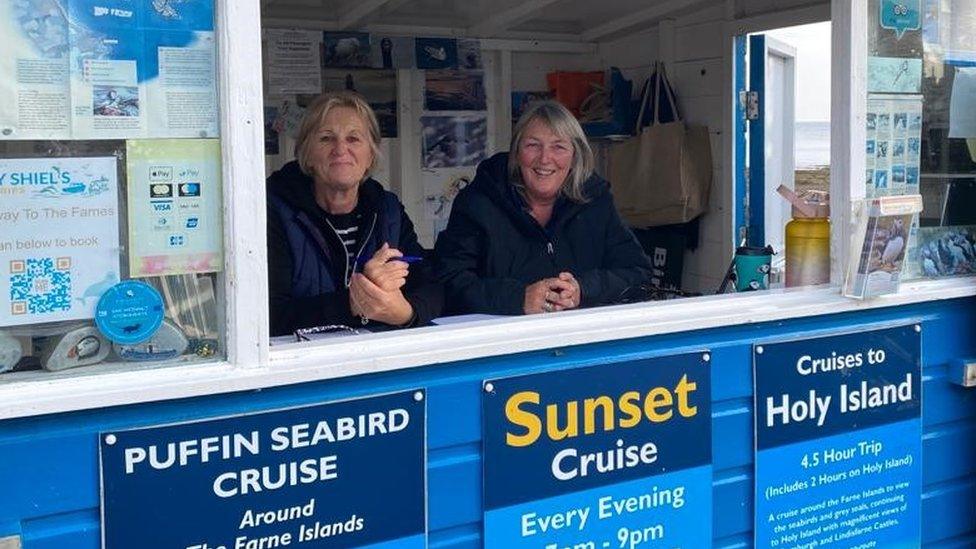
The boat company is optimistic things will pick up next year
Neil Carney, head of destination strategy at Visit Northumberland, admitted this year had seen a "more difficult trading environment".
But he added: "We remain generally optimistic that 2023 will continue the recovery - in visitor numbers, jobs and economic contribution - to pre-Covid levels."

Follow BBC North East & Cumbria on X (formerly Twitter), external, Facebook, external and Instagram, external. Send your story ideas to northeastandcumbria@bbc.co.uk, external
Related topics
- Published11 September 2023
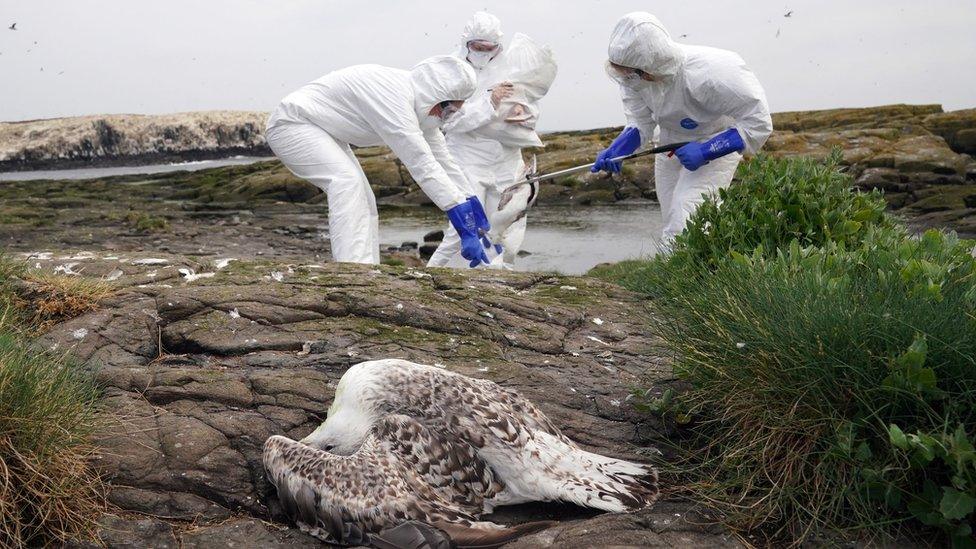
- Published25 April 2023
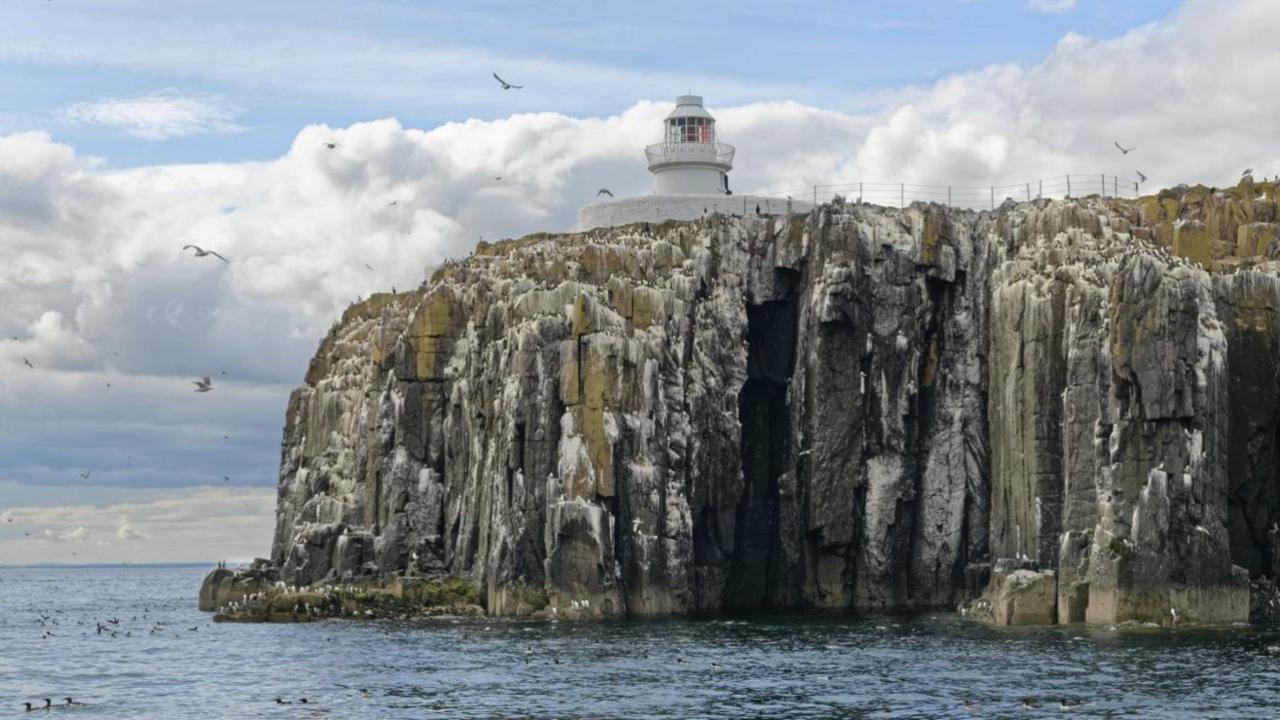
- Published14 April 2023
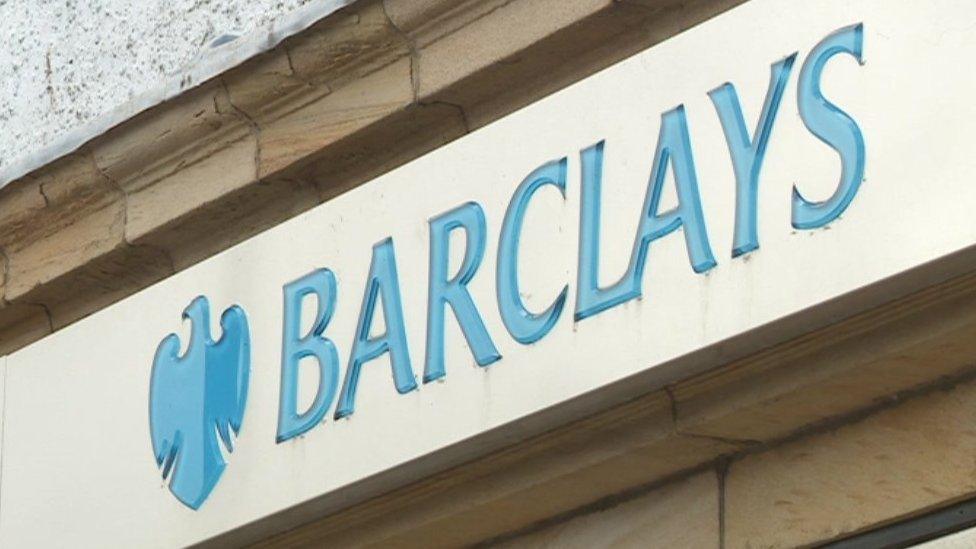
- Published16 January 2022
